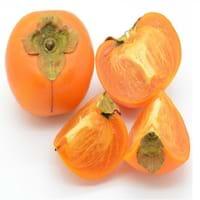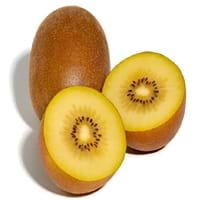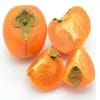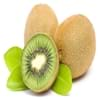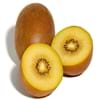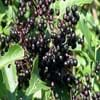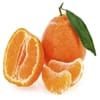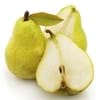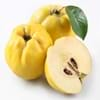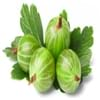Health Benefits
Cancer prevention, Heart care, Heat stroke treatment, Improves eye vision, Weight loss properties
Asthma treatment, Heart care, Improves stomach health, Regulation of heart rate, Treatment of skin Diseases
General Benefits
Anti-inflammatory properties, Boosts immune system, Cures cough, Digestive aid, Fights against infections, Improves blood circulation
Boosts immune system, Controls blood pressure, Eye care, Helps in weight loss
Skin Benefits
Anti-aging benefits, Brightens and lightens complexion, Reduces wrinkles
Brightens and lightens complexion, Heals sunburn, Reduces wrinkles, Skin rejuvenation, Treatment of acne, Treatment of dark spots, Treatment of skin diseases
Hair Benefits
Promotes longer and healthier hair, Protects hair
Prevents hair loss, Promotes longer and healthier hair, Treatment of dandruff
Allergy Symptoms
Abdominal pains, Anaphylaxis, Inflammation
Abdominal pains, Anaphylaxis, Breathing difficulty, Itching in tongue and other parts of mouth, Itching sensation in throat, Swelling of mouth, tongue or lips, Vomiting
Side Effects
Diarrhoea, Might affect blood pressure level
Allergic reaction, Diarrhoea, Skin rash, Possibly unsafe during pregnancy
Best Time to Eat
Along with meal, As a snack in the late afternoon, Don't consume at night and before bed, Morning time (before lunch)
Any time except an hour after meal
Vitamin B5 (Pantothenic Acid)
Not Available
Vitamin C (Ascorbic Acid)
Vitamin K (Phyllochinone)
Phytosterol
Not Available
Calories in Fresh Fruit with Peel
Calories in Fresh Fruit without Peel
Not Available
Not Available
Calories in Frozen Form
Not Available
Not Available
Calories in Canned Form
Not Available
Type
Berry, Tree fruit
Tropical
Season
Autumn, Winter
Spring, Summer, Winter
Varieties
Fuyu, Jiro, Gosho, Suruga, Hiratanenashi, Hachiya, Aizumishirazu, Yotsumizo, Yokono, Costata, Ormond and Tamopan
Qing Yuan #27, Qing Yuan #29, Qing Yuan #6 and Huang Yan
Color
Orange, Red, Yellow
Brown, Yellow
Inside Color
Orange
Yellow
Origin
Burma, China, India, Japan
China
Soil Type
Sandy loam, Well-drained
Well-drained
Climatic Conditions
Can tolerate wide range of climates
Cold, Sunny
Facts about
- Unripe persimmons contain lots of tannin which is used to brew sake & to preserve wood in Japan.
- A small non-edible fruit of persimmon tree is crushed with water, the solution is painted on paper & used to repel mosquitoes.
- The name Kiwi is due to its resemblance with 'Kiwi' bird.
- This variety of Kiwi was developed by New Zealand, it is not fuzzy on the outside and it has a taste reminiscent of the mango fruit.
Spirits
Not Available
Yes
Cocktails
Not Available
Yes
Other Countries
Azerbaijan, Brazil, Israel, Italy, Japan, Pakistan
Chile, France, Greece, Iran, Japan, New Zealand, Portugal, Turkey, United States of America
Top Importer
United States of America
United States of America
Top Exporter
Japan
New Zealand
Botanical Name
Diospyros kaki
Actinidia chinensis
Synonym
Not Available
Not Available
Subkingdom
Tracheobionta
Tracheobionta
Division
Magnoliophyta
Magnoliophyta
Class
Magnoliopsida
Magnoliopsida
Subclass
Dillenhidae
Dillenhidae
Family
Ebenaceae
Actinidiaceae
Genus
Diospyros
Actinidia
Species
D. kaki
A. chinensis
Generic Group
Not Available
Kiwi
Compare Japanese Persimmon and Gold Kiwi
It is important compare Japanese Persimmon and Gold Kiwi as both the fruits have a different nutritional value. Their comparison can be done on the basis of their vitamin and mineral content, calories, benefits as well as characteristics, making it easier for us to choose the best fruit for our diet. Their general health benefits are as follows:
Japanese Persimmon Benefits: anti-inflammatory properties, boosts immune system, cures cough, digestive aid, fights against infections and improves blood circulation.
Gold Kiwi Benefits: boosts immune system, controls blood pressure, eye care and helps in weight loss.
Fruits are also used as a remedy for various hair problems. The hair benefits of Japanese Persimmon are: promotes longer and healthier hair and protects hair and hair benefits of Gold Kiwi are: prevents hair loss, promotes longer and healthier hair and treatment of dandruff. Some fruits are known to cause allergic reactions. The allergy symptoms of first fruit are: abdominal pains, anaphylaxis and inflammation and the symptoms of second fruit are: abdominal pains, anaphylaxis, breathing difficulty, itching in tongue and other parts of mouth, itching sensation in throat, swelling of mouth tongue or lips and vomiting. Get sorted Japanese Persimmon vs Gold Kiwi comparison with the help of fruit comparison tool by fruitvs.com.
